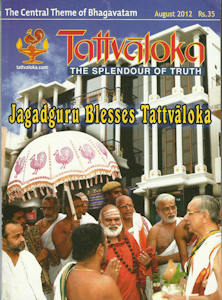This Post responds to the Comments of 18th April made by Suka.
(Suka’s Comment in blue and my response in black).
S: Mithya is defined as sadasadbhyām vilakṣaṇam – meaning it cannot be categorically classified as truth or false. Mithya is vyāvahārika, experientially efficient, substantially unreal.
R: vyAvahArika and prAtibhAsika fall under mithya. Both vyAvahArika and prAtibhAsika are experienced in their respective spheres, and both derive their reality based on the Reality of the immutable substratum. Dr. Mani Dravid Shastri also suggests in his lectures on adhyAsabhAshya that, “mithya can be divided into two categories, namely vyAvahArika or empirical and prAtibhAsika or illusory.”
S: The argument tat pot is an illusion does not hold water, because pot does hold water.
R: “Holding water” too is as much an illusion as pot or water!!

